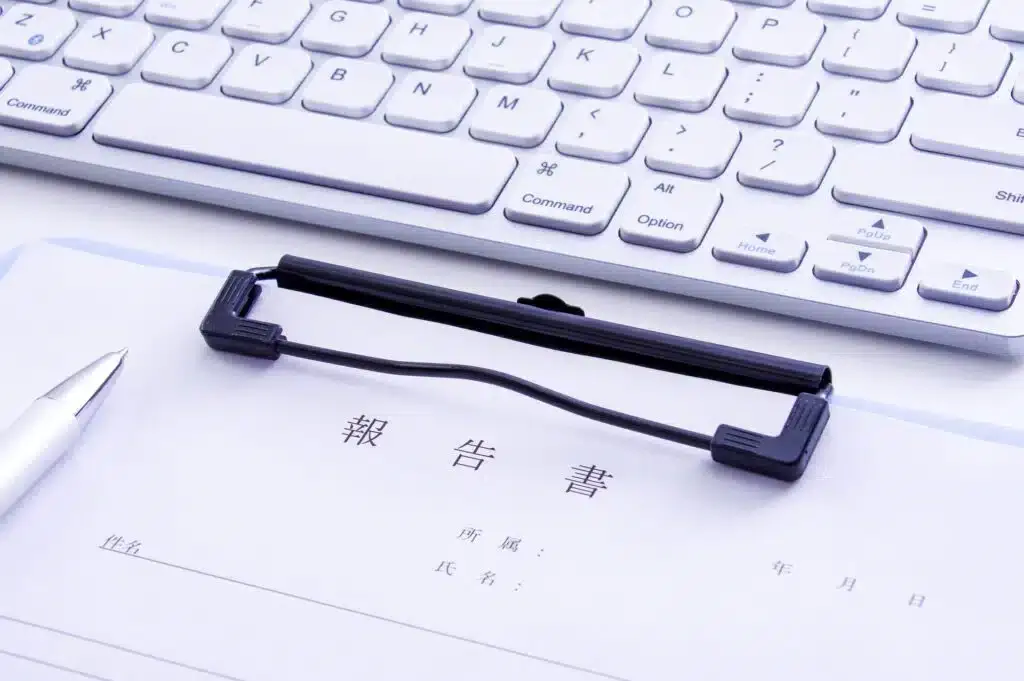Claims for Injunction and Actions for Nullity of Share Exchanges and Share Transfers under Japanese Corporate Law

Stock exchanges and transfers defined under Japanese Corporate Law are incredibly powerful tools for corporate reorganization. These methods are frequently utilized to achieve a variety of management strategies, such as establishing a complete parent-subsidiary relationship, executing M&A, or transitioning to a holding company system. While these transactions, led by management, are essential for corporate growth and competitive enhancement, they are not absolute. To protect shareholder interests, Japanese Corporate Law provides specific legal remedies to object to these reorganization actions. These include the ‘injunction request’ to prevent the effectuation of stock exchanges and transfers, and the ‘action for nullification’ to overturn their legal effects after they have taken effect.
These legal measures can serve as the last bastion for shareholders to protect their rights. On the other hand, for management, they represent a significant risk factor that could derail planned organizational restructurings. Therefore, it is crucial for all parties involved in stock exchanges and transfers to deeply understand the requirements of these objection systems, the strict procedures involved, and the trends in court judgments. This article provides a comprehensive explanation of the injunction requests and actions for nullification in stock exchanges and transfers under Japanese Corporate Law, including their legal basis and specific case examples.
Injunctions Against Stock Exchanges: Stopping Claims Under Japanese Corporate Law
Legal Framework for Injunctions
Shareholders in Japan have the right to file an injunction to prevent the execution of a stock exchange before it takes effect. This right allows them to demand that the company halt the execution of the stock exchange. The Japanese Companies Act stipulates this right for shareholders of a wholly-owned subsidiary in Article 784-2 and for shareholders of a complete parent company in Article 796-2.
To effectively exercise this right, shareholders typically file a petition for a provisional disposition order with the court, treating the right to request an injunction against the stock exchange as a right to be preserved. If the provisional disposition is granted, the company is legally unable to proceed with the stock exchange procedures. This serves as a swift and powerful deterrent for companies planning organizational restructuring.
Grounds for Granting an Injunction
For shareholders to file an injunction, specific grounds required by law are necessary. The main grounds are when the stock exchange violates laws or the company’s articles of incorporation, and as a result, there is a risk that shareholders will suffer a disadvantage.
The term “violation of laws” includes various cases. For example, typical cases are as follows:
- Illegality of the content of the stock exchange agreement (e.g., the calculation of consideration is significantly unfair)
- Failure to provide legally mandated disclosure documents in advance or making false statements in them
- Significant defects in the procedures of the shareholders’ meeting resolution that approved the stock exchange
- Failure to perform legally required creditor protection procedures
In addition, in the case of a simplified stock exchange where the shareholders’ meeting resolution can be omitted, if the consideration for the stock exchange is “significantly unfair” in light of the financial situation of the company involved, it is also recognized as a ground for an injunction.
Judicial Decisions: The Kansai Supermarket Case
A representative case that illustrates how injunction claims are actually contested is the 2021 legal dispute surrounding Kansai Supermarket. This case garnered significant attention for whether a procedural flaw in the interpretation of a shareholder’s voting behavior could serve as a basis to halt a major business integration.
The case summary is as follows: At an extraordinary shareholders’ meeting of Kansai Supermarket, a shareholder had previously submitted a voting rights exercise form in favor. However, the shareholder attended the meeting on the day and cast a blank vote due to a misunderstanding. After the initial tally, the chairman confirmed the shareholder’s true intention and ultimately treated that vote as “in favor.” As a result, the stock exchange proposal was narrowly approved.
In response, OK Corporation, a shareholder opposed to the integration, argued that the chairman’s discretion constituted a resolution by “significantly unfair methods” as defined in Article 831, Paragraph 1, Item 1 of the Japanese Companies Act. They filed a petition for a provisional disposition to stop the stock exchange based on this procedural defect as a “violation of laws” under Article 796-2 of the Japanese Companies Act.
Ultimately, the Supreme Court of Japan, in its decision on December 14, 2021, recognized the chairman’s discretion and allowed the execution of the stock exchange. However, this case clearly demonstrated how seemingly minor procedural issues at a shareholders’ meeting could escalate into a legal battle that shakes the entire corporate management strategy. It highlighted how much the courts value the fairness of procedures. This suggests that strictly adhering to formal rules in corporate management is the first line of defense to avoid legal risks. In filing an injunction, shareholders must prove procedural violations and the “risk” of suffering a disadvantage due to them, but if the procedural violation is significant, the risk of disadvantage may be broadly interpreted.
Overturning the Effects of a Stock Exchange: The Claim of Invalidity Under Japanese Corporate Law
The Legal Framework for Claims of Invalidity Under Japanese Corporate Law
A claim of invalidity is a legal recourse designed to fundamentally overturn the effects of a stock exchange that has already taken effect. This post-effective remedy is based on Article 828, Paragraph 1, Item 11 of the Japanese Companies Act.
Claims of invalidity are subject to more stringent procedural constraints than injunction requests.
- Filing Period: A claim must be filed within six months from the date the stock exchange takes effect. This period is immutable and cannot be extended.
- Eligible Plaintiffs: Only certain individuals or entities have the standing to file a claim, including shareholders, directors, auditors, liquidators of the company at the time the effect occurs, and creditors who did not approve the stock exchange.
- Defendants: The lawsuit must name both the complete parent company and the complete subsidiary as defendants (mandatory joint litigation).
Grounds for Recognizing Invalidity Under Japanese Law
Japanese law does not specifically enumerate the grounds for invalidity. Therefore, whether a case is deemed invalid depends on the court’s judgment on an individual basis. Generally, a defect serious enough to undermine the entire legitimacy of a transaction is required, which is more significant than the grounds for an injunction. The requirement of ‘fear of suffering disadvantage,’ which is demanded in injunction claims, is not necessary for a claim of invalidity; however, the seriousness of the defect itself is scrutinized.
Trends in Judicial Decisions: Two Contrasting Case Studies in Japan
The criteria by which courts determine the validity of corporate reorganizations can be understood through two contrasting case studies.
The first is a decision by the Kobe District Court, Amagasaki Branch, on February 6, 2015 (Heisei 27), which recognized the invalidity of a transaction due to significant procedural defects. In this case, the issue was that a company had failed to prepare the legally mandated pre-disclosure documents detailing the content of the stock exchange agreement and the financial condition of the counterparty company. The court ruled that this omission deprived shareholders of fair judgment material and effectively made it impossible to exercise important rights, such as the right to demand the purchase of shares. This was not merely a minor mistake but a serious procedural violation that fundamentally infringed on the rights of shareholders, leading the court to conclude that the stock exchange itself was invalid.
The second case involves a judgment by the Tokyo High Court on September 28, 2023 (Reiwa 5), which rejected substantive claims of unfair stock exchange ratios (former Alps Electric & Alpine case). In this case, minority shareholders of Alpine, which had become a wholly-owned subsidiary, claimed that the stock exchange ratio with the parent company, Alps Electric, was unfair. However, the court did not accept this argument. At the heart of the decision were the “measures to ensure fairness” taken during the decision-making process by the company. Specifically, the company was evaluated for obtaining a stock valuation report and fairness opinion from an independent third-party valuation institution, establishing an independent third-party committee to oversee the negotiation process, and excluding directors with conflicts of interest from the resolution. The court indicated that as long as such objective and transparent procedures are followed, the exchange ratio determined by the management should be presumed fair, and overturning this requires exceptional circumstances.
These case studies demonstrate a clear trend in how Japanese courts assess the validity of corporate reorganizations. While they strictly deem transactions invalid in the face of objective and clear procedural violations, such as the lack of pre-disclosure documents, courts refrain from easily intervening in management decisions, such as the fairness of exchange ratios, as long as fair procedures are ensured. For corporate executives in Japan, this implies that securing procedural fairness, such as seeking advice from independent experts, is the best defense against legal challenges. Furthermore, if an invalidity judgment becomes final, its effects extend to third parties (effect against the world), and although it does not have retrospective effect, the company in question is obliged to return the acquired shares to the original shareholders (under Japanese Corporate Law, Article 844), causing significant disruption to transactional relationships. This consideration for legal stability is also a reason why courts are cautious in making invalidity decisions.
Injunctions and Invalidity Claims Against Share Transfers Under Japanese Corporate Law
Share transfers involve the acquisition of all shares of an existing company by a newly established company to create a wholly-owned subsidiary relationship. The legal framework for objections to this process is largely similar to that of share exchanges under Japanese corporate law.
Shareholders can file an injunction to prevent the effectiveness of a share transfer before it takes effect, based on Article 805-2 of the Japanese Companies Act. Furthermore, after the transfer has become effective, shareholders may file a lawsuit to declare the transfer invalid, in accordance with Article 828, Paragraph 1, Item 12 of the Japanese Companies Act.
The grounds for recognizing an injunction or an invalidity claim are essentially the same as those for share exchanges. Issues may arise from violations of laws or articles of incorporation in the content of the share transfer plan or in the approval procedures. However, an important difference is that, unlike share exchanges, there are no ‘simplified procedures’ or ‘summary procedures’ that allow for the omission of a shareholders’ meeting in share transfers. Therefore, grounds for injunctions related to these procedures do not apply to share transfers.
Strategic Comparison of Injunction Requests and Invalidity Claims Under Japanese Corporate Law
When shareholders and managers consider legal measures in Japan, deciding whether to choose an injunction request or an invalidity claim, or preparing for the risks of either, is a strategically important judgment. Both systems have clear differences in timing, legal requirements, and objectives.
An injunction request is a preventative measure that can only be taken before the effectiveness of a share exchange or transfer. Its purpose is to prevent the execution of a problematic transaction or to encourage the company to renegotiate under more favorable conditions. In contrast, an invalidity claim is a post-event remedy that can only be filed within a strict six-month period after the effect has occurred, aiming for a more fundamental and impactful result of reverting a completed transaction to a blank slate.
From a legal proof perspective, an injunction request requires shareholders to prove the “possibility of disadvantage,” whereas an invalidity claim does not have this requirement. However, an invalidity claim requires proving the existence of a significant flaw serious enough to overturn a completed transaction, and this hurdle is quite high.
One point of particular attention for legal professionals is the judicial practice known as the “absorption theory.” This concept holds that when disputing the validity of a corporate reorganization based on flaws in the shareholders’ meeting resolution, once the effect of the reorganization has occurred, one can no longer file a lawsuit to cancel the resolution itself; instead, the flaws should be argued as grounds for invalidating the reorganization. For example, while a resolution cancellation lawsuit can be filed within three months of the shareholders’ meeting, if the effect of the reorganization occurs one month after the meeting, the remaining two months cannot be used to file a cancellation lawsuit. To argue the flaw, one must file an invalidity claim for the reorganization itself within six months of the effective date. Without understanding this legal rationale, one risks mistiming the litigation period and losing the right to dispute altogether.
The differences between these systems are summarized in the table below.
| Characteristic | Injunction Request for Share Exchange | Invalidity Claim for Share Exchange | Injunction Request for Share Transfer | Invalidity Claim for Share Transfer |
| Legal Basis | Japanese Companies Act Article 784-2, 796-2 | Japanese Companies Act Article 828, Paragraph 1, Item 11 | Japanese Companies Act Article 805-2 | Japanese Companies Act Article 828, Paragraph 1, Item 12 |
| Filing Period | Before the effective date | Within 6 months after the effective date | Before the effective date | Within 6 months after the effective date |
| Main Grounds for Petition | Violation of laws/regulations, significantly unfair conditions (in summary proceedings) | Significant procedural/substantive flaws | Violation of laws/regulations | Significant procedural/substantive flaws |
| “Possibility of Disadvantage” Requirement | Required | Not required | Required | Not required |
| Effect of Judgment | Injunction of future actions | Effect against third parties (no retroactive effect) | Injunction of future actions | Effect against third parties (no retroactive effect) |
Conclusion
In the realm of Japanese corporate law, the right to seek injunctions and file suits for nullification against share exchanges and transfers is a crucial system for protecting shareholder rights. However, as evident from case law analysis, the courts adopt a cautious stance, especially when determining the invalidity of transactions. The most likely chance of success is when shareholders can argue clear procedural violations by the company, such as neglect of the duty to disclose information in advance. This fact strongly suggests the importance for management to pay meticulous attention and strictly adhere to legal procedures when executing corporate reorganizations. For shareholders, it is essential to take swift and accurate legal action if they discover procedural flaws on the part of the company.
Monolith Law Office boasts a wealth of experience in providing legal services related to share exchanges and transfers as explained in this article, serving numerous clients within Japan. We offer consistent support, from identifying legal risks in the planning stages of organizational restructuring to litigation responses such as injunction requests and nullification suits. Our firm also includes several English-speaking attorneys with foreign legal qualifications, enabling us to explain the complex provisions and practical customs of Japanese corporate law to international clients in an understandable manner and propose optimal strategies. If you have any inquiries regarding the topics discussed here, please do not hesitate to contact our office.
Category: General Corporate





















